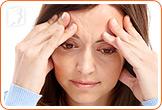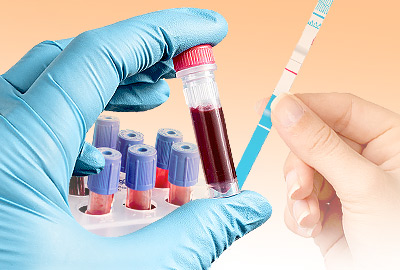During her reproductive life, a woman goes through four key stages: premenopause, perimenopause, menopause, and postmenopause.

Premenopause are the years in which a woman is reproductive; she has not yet reached menopause. During these years, she is may get pregnant, give birth, and breastfeed.
Perimenopause is often confused with the term “menopause”. The perimenopause stage refers to the time that precedes menopause, in which a woman is still menstruating, but is reaching the end of her reproductive years. This period is characterized by a number of uncomfortable physical and emotional perimenopausal symptoms.
Menopause occurs on the day when a woman has spent 12 months without a period.
Postmenopause is the time after menopause, when a woman is no longer menstruating, and is no longer fertile.
Why Does this Happen?

During the menopause transition, estrogen, progesterone, and testosterone levels begin to decrease. This hormonal imbalance is what causes menopausal symptoms. As hormone levels decrease, periods become more and more irregular until ovulating ceases entirely.
Talk to Someone
If you are struggling with the concept of perimenopause and menopause, or with the emotional impact of experiencing such transitions, it can be beneficial to share your feelings with your partner, a doctor, or a friend. It is likely that one of your friends or an older sister have been through the same symptoms as you. It is also likely that she is having the same thoughts and concerns. Discuss how you are feeling, and help each other through this experience.
Seek Treatment for Physical Symptoms
Talk to your doctor if you are experiencing severe symptoms during perimenopause. There is a wide range of treatments available, from lifestyle changes to hormone replacement therapy. Adopting one of these treatments can help you alleviate some of the unpleasant symptoms of menopause.
Sources
- BMJ Group. "Menopause: What is it?" Patient Leaflet. 2007.
- Hopkins, Virginia. Lee, John R. M.D. What Your Doctor May Not Tell You About Menopause. New York: Warner Books Inc., 1996.
- Love, Susan M.D. Menopause and Hormone Book. New York: Three Rivers Press, 2003.
- Martin, Raquel. The Estrogen Alternative. Rochester, VT: Healing Arts Press, 2000.



